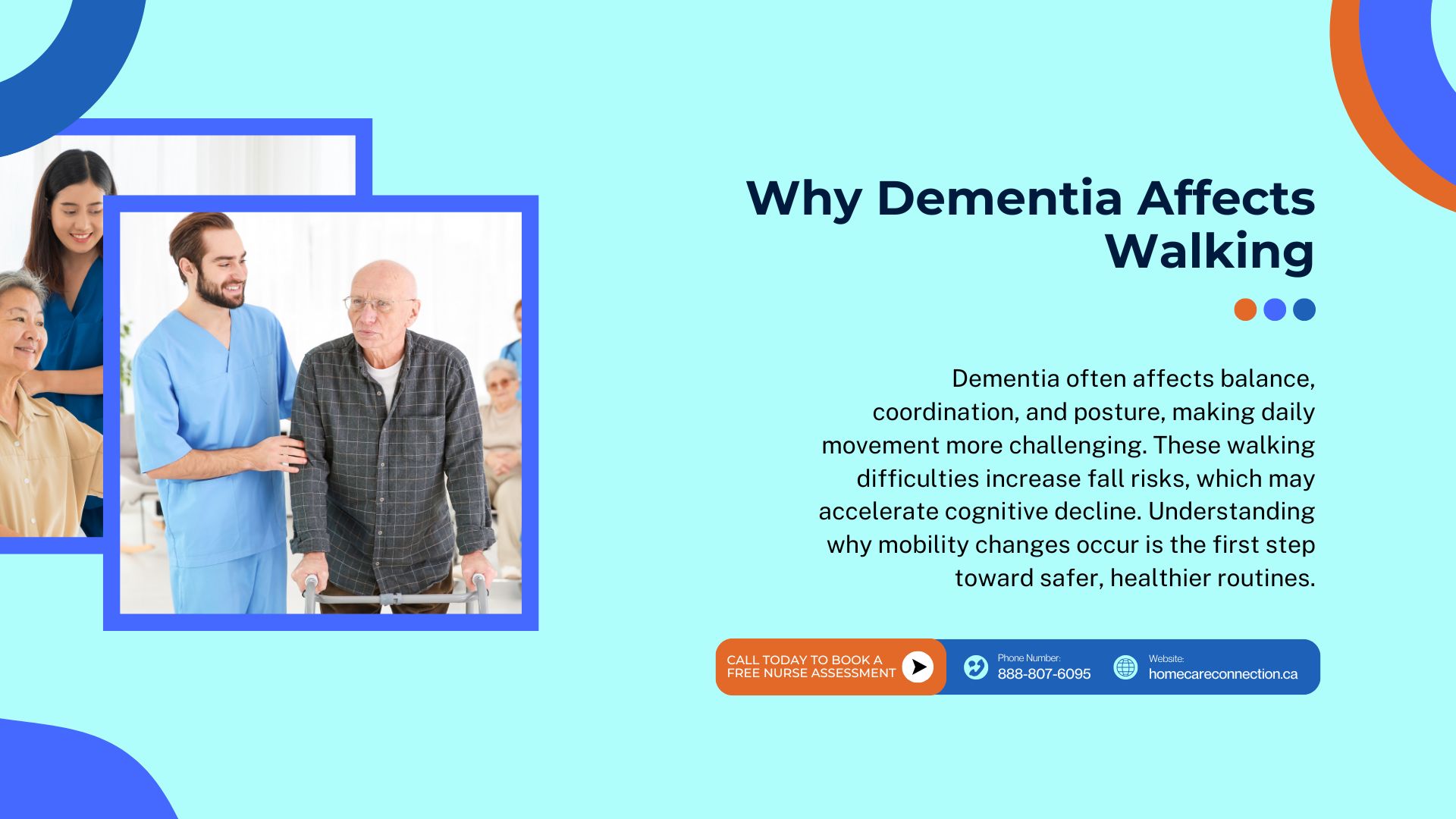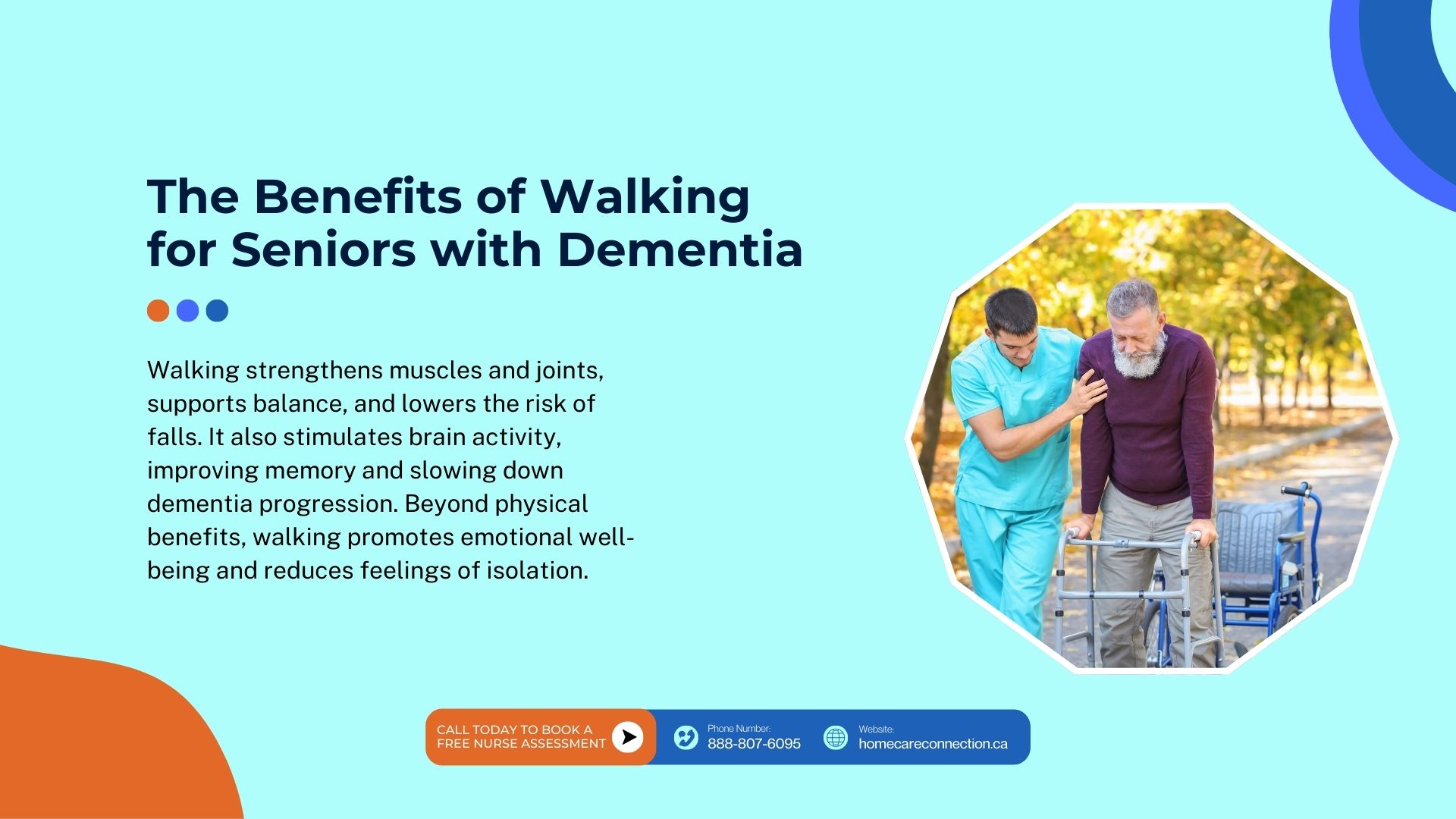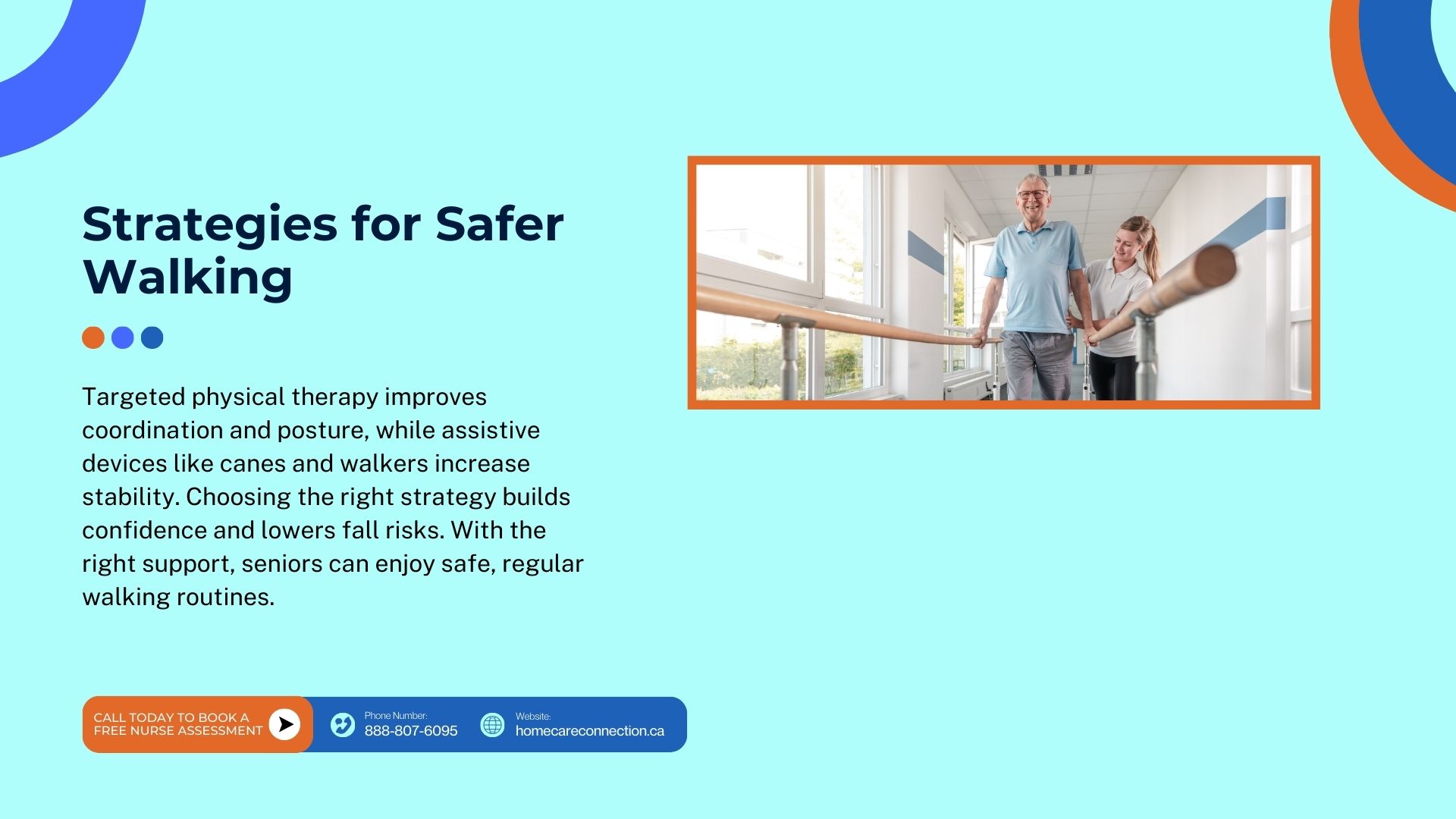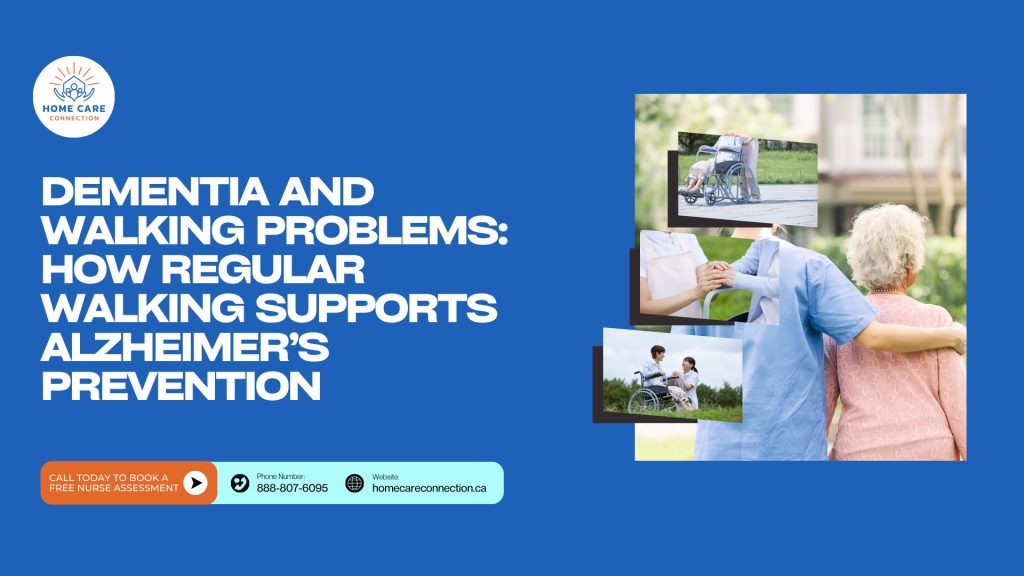Dementia and Walking Problems: How Regular Walking Supports Alzheimer’s Prevention
Dementia affects millions of older adults worldwide, leading to memory loss and cognitive decline. Along with these challenges, many people with dementia also experience walking problems, such as poor balance, dizziness, and reduced coordination. These difficulties can make daily living harder and increase the risk of falls.
Regular walking offers more than physical exercise. Study shows that walking can support brain health, improve mobility, and even reduce the risk of developing Alzheimer’s disease. By making walking a regular part of daily routines, seniors can boost both cognitive functioning and overall well-being.
Understanding Dementia and Walking Problems

Walking problems are common in people with dementia. Difficulties with standing posture, balance, and coordination often appear as the condition progresses. These challenges may also be linked to mild cognitive impairment, which increases the risk for dementia.
Regular walking is one of the simplest physical activities to support brain health. The effects of walking include better circulation, which helps memory and cognitive function in older adults. Walking also creates opportunities for social interaction, which reduces isolation and supports emotional well-being.
Common Walking Issues in Dementia
Many families notice their loved ones experiencing changes in mobility. Some of the most common issues include:
- Shuffling steps or slowed walking speed
- Difficulty maintaining balance
- Dizziness in elderly adults
- Muscle weakness or stiff joints
These problems not only affect independence but also raise the risk of cognitive decline when paired with falls and hospital stays.
Benefits of Walking for Seniors with Dementia

Walking provides multiple benefits that support both physical and cognitive health:
Improves Balance and Strength
Walking strengthens muscles and joints, improving stability and lowering the risk of falls.
Supports Cognitive Function
Regular walking stimulates the brain, helping form new pathways that may slow down the progression of dementia and Alzheimer’s disease.
Boosts Emotional Well-Being
Walking helps lower agitation, anxiety, and depression. When paired with companion care, it also encourages social interaction, which supports mental health and emotional well-being.
The Link Between Walking and Dementia Prevention
A new study shows that walking regularly can reduce dementia risk. Physical exercise improves blood flow, lowers blood pressure, and supports overall brain health. Walking may also delay the onset of symptoms in patients with Alzheimer’s and those at higher risk of developing dementia.
Safe walking routines, whether outdoors or at home, encourage independence while reducing fall risks. A walking group or companion walks can also improve motivation and create meaningful social connections.
How Walking Affects Daily Life with Dementia
Safety Concerns
Mobility challenges increase the risk of falls, which can speed up dementia progression. Safe walking spaces, mobility aids, and supervised walks are key to lowering risks.
Emotional Impact
Reduced mobility can lead to isolation and depression. Regular walking, especially with companions, helps maintain confidence and connection.
Can Falls Accelerate Dementia?
Yes. Falls in seniors with dementia often lead to hospital stays, which can worsen cognitive decline. A fall may result in a faster progression of dementia symptoms, especially when combined with poor balance, dizziness, or mobility issues. Preventive steps, such as using walking aids and creating safe home environments, help reduce risks.
Strategies for Managing Walking Problems

Physical Therapy
Targeted therapy can improve posture, coordination, and mobility for older adults with dementia. These sessions build strength and reduce the risk of falls.
Assistive Devices
Walking aids such as canes and walkers provide stability. Choosing the right device improves independence and confidence while reducing accidents.
Conclusion
Walking is a simple yet powerful way to support both mobility and cognitive functioning in seniors with dementia. It strengthens the body, protects against falls, and may even reduce your risk of dementia. Beyond physical health, walking also supports emotional well-being and social connection, two key factors in quality of life.
Encouraging safe walking routines, pairing physical activity with companionship, and considering walking aids when needed can help older adults remain independent. For families, these steps ensure that loved ones with dementia can live with more confidence, safety, and dignity.
Frequently Asked Questions
What type of dementia causes walking problems?
Vascular dementia and Lewy body dementia are often linked to walking difficulties such as shuffling steps and balance issues. Alzheimer’s disease can also affect mobility as it progresses.
What percentage of dementia cases are caused by Alzheimer’s disease?
About 70% of all cases are due to Alzheimer’s disease, the most common form of dementia. It begins with memory loss and later affects movement and daily routines.
What is the gait of frontotemporal dementia?
Frontotemporal dementia primarily affects behavior and language, but some individuals may develop stiff or unsteady walking patterns as the condition advances.
How is vascular dementia different from other types?
Vascular dementia is caused by reduced blood flow to the brain, often after strokes. It may cause more sudden changes in movement and problem-solving compared to Alzheimer’s disease.






